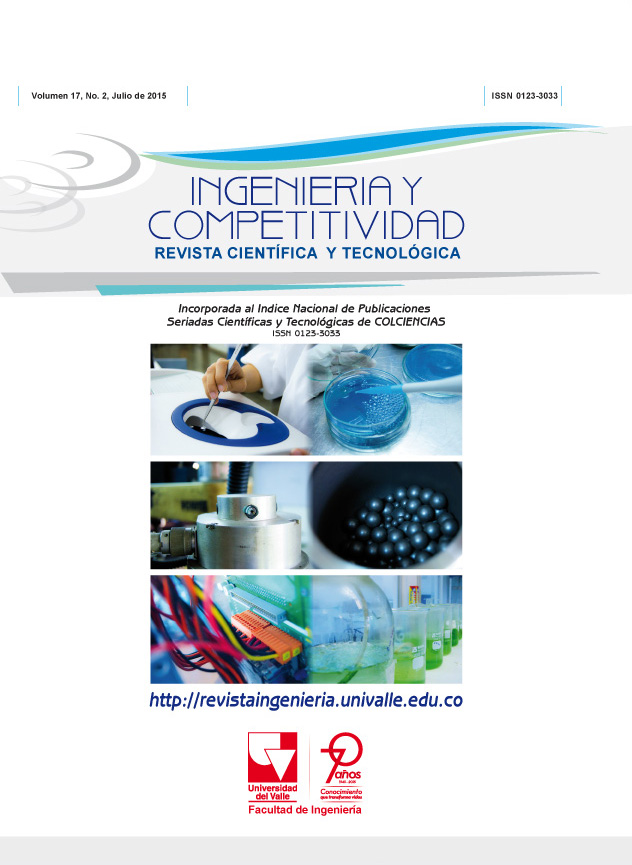Encapsulación de sabores de d-limoneno mediante secado por aspersión: efecto de la adición de emulsificantes
Palabras clave:
Emulsión, estabilidad, optimizaciónContenido principal del artículo
El objetivo de este estudio fue evaluar la adición de cuatro emulsificantes (tween 20, tween 60, caseinato de sodio y pectina de bajo metoxilo) en la formulación y estabilidad de emulsiones de d-limoneno estudiando su efecto en las propiedades de calidad del producto obtenido mediante secado por aspersión y variables de desempeño del proceso. Los resultados para las emulsiones mostraron diferencias significativas (p<0,05) con relación a la viscosidad y potencial z, estableciendo por medio de una optimización que la mejor formulación se alcanza con una mezcla de 0,4% pectina de bajo metoxilo y 0,1% de tween 60. Para el proceso de secado por aspersión fue evaluada la variación de la temperatura de entrada (150-200ºC) y salida (90-110ºC) del aire de secado y velocidad del disco atomizador (20000-30000 rpm). Las condiciones óptimas para el proceso de secado se alcanzaron con una temperatura de entrada y salida del aire de 156,7ºC y 90ºC, respectivamente y velocidad del disco atomizador de 30000 rpm, para las cuales se obtuvo: recuperación de sólidos 90,9%, material adherido 0%, solubilidad 98,4%, humedad 2,22% (b.h), higroscopicidad 9,2%, actividad de agua 0,112 y eficiencia de encapsulación 98%, resultando un producto con características adecuadas para su industrialización
Downloads
Los autores que publican en esta revista están de acuerdo con los siguientes términos:
Los autores ceden los derechos patrimoniales a la revista y a la Universidad del Valle sobre los manuscritos aceptados, pero podrán hacer los reusos que consideren pertinentes por motivos profesionales, educativos, académicos o científicos, de acuerdo con los términos de la licencia que otorga la revista a todos sus artículos.
Los artículos serán publicados bajo la licencia Creative Commons 4.0 BY-NC-SA (de atribución, no comercial, sin obras derivadas).

